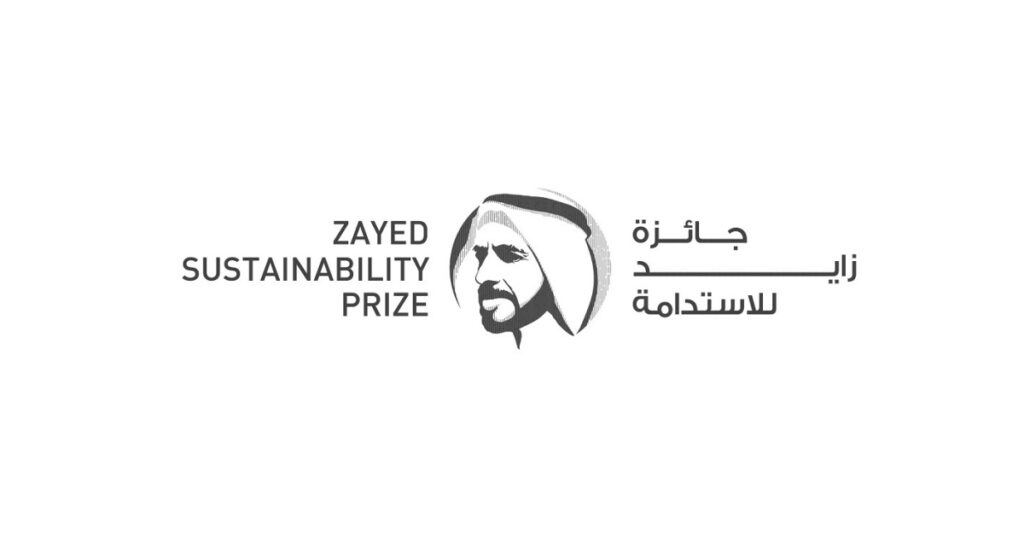About
At the 2008 World Future Energy Summit, H.H. Sheikh Mohamed bin Zayed Al Nahyan, Crown Prince of Abu Dhabi and Deputy Supreme Commander of the UAE Armed Forces, announced the launch of the Zayed Future Energy Prize – a tribute to his father, the late Sheikh Zayed bin Sultan Al Nahyan, and his sustainability legacy.
By recognising pioneering solutions and technologies that can change the world, the Zayed Sustainability Prize, has rewarded innovators and visionaries whose achievements have furthered the global proliferation of innovative, impactful and inspirational sustainability solutions.
Over 335 million people have been directly or indirectly impacted by the sustainability solutions and school projects of the 86 recipients of the Prize winners since the first awards ceremony in 2009.
Deadline
The Zayed Sustainability Prize opened for submissions in January 2020 and will remain open until the deadline on 11 June 2020. Submissions will not be accepted outside of the submissions period.
How to Apply
Interested applicants should submit using the online submissions portal. This can also be accessed through the homepage of the Zayed Sustainability Prize website.
Categories
- Health
- Food
- Energy
- Water
- Global High Schools (1 award for each of the below regions)
- The Americas
- Sub-Saharan Africa
- Middle East & North Africa
- Europe & Central Asia
- South Asia
- East Asia & Pacific
Criteria
For Health, Food, Energy and Water categories, the criteria are:
INNOVATION: 40%
Innovation refers to a novel solution or a transformation of an existing solution that solves a challenge or a need, generates value and brings significant positive impact. A solution can be a technology, a service or a business model.
The innovation criterion requires organisations to demonstrate that their solution:
- has a unique value proposition;
- is disruptive or transformative;
- is technically and commercially viable; and
- is adopted by the market.
The Prize does not award early stage start-ups, demonstration projects, prototypes or solutions that have not demonstrated any impact on the ground.
IMPACT: 30%
Impact refers to a positive change that addresses social, economic, technological and/or environmental challenge(s) and has proven to make the world a better place by improving the well-being of humanity.
The impact criterion requires organisations to demonstrate that:
- their solution already has had a positive impact on the quality of peoples’ lives;
- they are resilient to potential social, economic, technological, and environmental challenges;
- they have good governance by employing skilled people and establishing fair policies;
- they have a detailed plan of how the Prize money would be used to further increase their impact.
INSPIRATION: 30%
Sheikh Zayed bin Sultan Al Nahyan, the founding father of the UAE, was a pioneering advocate of global sustainability and human development. Leading by example, he placed great value in the pursuit of socioeconomic development that meets the needs of both current and future generations. Continued through the Prize, Sheikh Zayed’s legacy is a source of inspiration for the entire world.
The inspiration criterion requires organisations to demonstrate that their solution:
- reflect’s Sheikh Zayed’s core values – sustainability and human development that were central to his own approach and actions;
- can inspire and influence others to advance sustainable and human development; and
- can further inspire sustainable actions from the wider community by instigating behavioural changes.
For Global High Schools category, the evaluation criteria are:
INNOVATION: 30%
Innovation refers to a creative idea, proposed by students, which solves a challenge or a need for the school and/or local community in the areas of health, food, energy and/or water.
The Innovation criterion requires schools to demonstrate that:
- the project is driven by students who work together to identify a challenge and create an innovative solution either by utilising existing technologies or by developing their own;
- the students use project management techniques – planning, scheduling, and budgeting to implement the idea, and apply learnings at school to deliver the desired sustainability outcome.
The Prize does not award early stage start-ups, demonstration projects, prototypes or solutions that have not demonstrated any impact on the ground.
IMPACT: 30%
Impact refers to a positive change, as a result of the proposed project, that improves the well-being of the school, students and/or local community.
The Impact criterion requires schools to demonstrate that:
- the project delivers measurable sustainability outcomes – in terms of access to sustainable energy, clean water, basic healthcare and/or nutritious food in your school or wider community;
- the project delivers benefits for both current and future students. These benefits may include, but are not limited to opportunities for education and/or improving technical skills in the area of
sustainable development.
INSPIRATION: 40%
Sheikh Zayed bin Sultan Al Nahyan, the founding father of the UAE, strongly believed that a country’s greatest investment lies in building generations of knowledgeable youth. He was a firm believer of youth’s active role in the development process by sharing responsibilities to lay foundations for the success of the society. Continued through the Prize, Sheikh Zayed’s legacy is a source of inspiration for the young generation.
The Inspiration criterion requires schools to demonstrate that:.
- the project reflects Sheikh Zayed’s core values – sustainability and human development that were central to his own approach and actions;
- the project can be sustained in the long term;
- the project inspires students to become the next generation of innovators, entrepreneurs and leaders capable of addressing sustainability challenges;
- the project further inspires responsible actions from the wider community and other schools.

